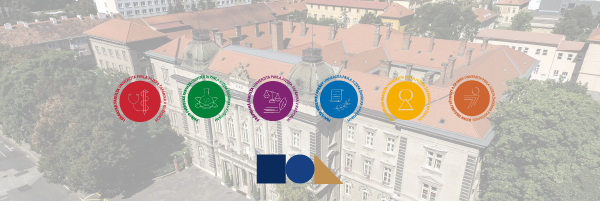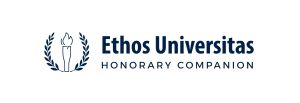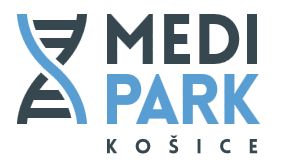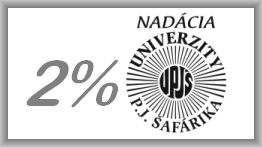

Incoming Students, Welcome!
Pavol Jozef Šafárik University in Košice welcomes all incoming students. The information below will help you navigate through the application procedure.

Puzzled?
Feel free to contact our faculty/departmental/institutional coordinators or our coordinator for Erasmus+ 171:
Mgr. Veronika Petruňová
Tel.: +421 55 234 16 79
Email: veronika.petrunova@upjs.sk
Special Needs Support
UPJŠ welcomes and offers assistance to students and staff with special needs. However, the IRO must be informed about it during the application procedure since our options are conditioned by the state and university regulations and possibilities.
The Inter-institutional agreement has to be duly signed prior selection of participants.
- Normally, the sending institution selects participants, and nominates them to be accepted or rejected by the receiving institution. Some institutions may prefer to set joint procedures, including for example joint selection panels to ensure consistent selection of participants.
- The sending and the receiving institution should have a common understanding regarding selection of participants and should have set a basic timeline and identified the colleagues responsible for the nomination of students and staff.
- Partners commit to doing outreach to participants with fewer opportunities to encourage their participation in the Programme and, where needed, agree on a common strategy to meet indicative inclusion targets.
- Partners commit to running selection procedures for mobility activities that are fair, transparent and documented, ensuring equal opportunities to participants eligible for mobility. The calls for applications must be public. Selection criteria and procedures must be clearly communicated in the call for applications.
- Institutions shall take the necessary measures to prevent any conflict of interest with regard to persons who may be invited to take part in the selection bodies or selection process. An appeal procedure must be in place.
- Under no circumstances, shall applicants and selected participants incur any costs during application and selection procedures.
- In the case of student mobility, partners will ensure that other elements beyond academic merit are taken into account to ensure participation of students with fewer opportunities. In the evaluation and selection process in case of equivalent academic merit, preference should be assigned to students with fewer opportunities, commonly agreed by the partner institutions as target groups in their Inter-institutional agreement.
- A student can go on mobility several times, up to a maximum of 12 months per study cycle (excluding time covered by virtual components during a blended mobility). Prior experience under Erasmus+ mobility for higher education students (KA103, KA131, KA107, KA171) and as scholarship holders of Erasmus Mundus Master Courses and Erasmus Mundus Joint Master Degrees is taken into account for the maximum of 12 months. However, participation in Erasmus Mundus Master Courses and Erasmus Mundus Joint Master Degrees as self-financing participants is not taken into account.
- After the selection of participants, the partner institution is obliged to send to the International Relations Office of the Pavol Jozef Šafárik University in Košice a scanned copy of the record of the selection procedure.
The IRO will inform the selected student(s) about the further administrative steps and necessary documents.
Among other things,
- We need to agree on the period of the mobility
- The student, the sending and the receiving institutions must agree on the activities that the student will undertake during the mobility by signing a Learning Agreement – part Before the Mobility (please see a template in section Documents). The LA has to be signed by all parties before the mobility. The course catalogue is available at: https://www.upjs.sk/en/information/international-relations/erasmus/calendar-catalogue/course-catalogue-2023-2024/ . Bachelor and Master students should choose primarily the courses, but if they agree on it with a coordinator at the UPJŠ, they can also add a thesis research in addition to the courses. PhD. students can choose either courses or just a thesis research or a combination of courses and a thesis research.
- The student has to send to the IRO an English (or Slovak) language certificate, in case if the receiving faculty/institute/department needs it (in accordance with the language requirements set in the Inter-institutional agreement). If the student does not have any certificate, his/her coordinator can fill in a language Proficiency Form (please see a template in section Documents).
- The IRO will prepare an invitation letter for a selected student(s).
- The student must verify if they need a visa and/or a temporary residence permit in order to come, study and stay in Slovakia, where they need to apply and what documents are required. Please check it very carefully (please see a guide to administrative duties in section Useful links and at: https://www.upjs.sk/en/information/international-relations/onepoint/#entry-and-stay).
- The student has to arrange the travel tickets by themselves.
- The incoming students have to ensure an insurance covering the entire duration of the mobility including the travel. An incoming mobile participant has to send a copy of the insurance to the IRO before the start of the mobility. An insurance of medical expenses is compulsory, but the student is recommended to also ensure other types of insurance policies, as they may deem fit (for example an accident insurance, a liability insurance etc.). It is also necessary to verify what criteria has the insurance meet in relation to visa procedure (if relevant).
Non-EU member states citizens have to report their stay to the Foreign Police in Košice (submit the Notice of the stay) within 3 working days since their arrival in Slovakia, and those who stay in Slovakia for more than 90 calendar days need to cover their stay either by the national visa in the interest of the Slovak republic (easier way) or by a temporary residence permit (please see a guide to administrative duties in section Useful links and at: https://www.upjs.sk/en/information/international-relations/onepoint/#entry-and-stay).
We cooperate with the Erasmus Student Network (ESN) in Košice, whose members are students/volunteers (buddies), and who help the incoming students during their first weeks. They will contact the student before the start of the mobility. They can also help students with the foreign police.
In order to sign a financial agreement and receive a financial support, the students have to establish a Slovak bank account.
As soon as the IRO has all necessary documents from the student, we will sign a financial agreement. A total financial support will consist of 2 parts: an individual support (i.e. support for the accommodation, meals and other expenses) and an allowance for covering the travel costs. You will receive 70% of the total financial support within one week after signature of the financial agreement and the remaining 30 % will be sent to the students by the end of the mobility (after submitting an online EU survey report).
The student will need an ISIC card (for the library, student canteen, discount for public transport etc.).
If approved by the coordinators at both the sending and the receiving institutions, the student can add more courses or delete some of the previously chosen courses (as soon as possible). A Learning Agreement – part During the Mobility has to be signed no later than 1 month after the beginning of studies (in case of a long-term mobility).
30 days before the end of the mobility, the student will receive a request (by email) for filing an online report through the EU Survey. Submitting the EU Survey report is the condition for receiving the remaining 30% of your financial support.
During the last week, the student has to bring a confirmation from Library, a confirmation from the student dormitory and submit an online Post-Visit Evaluation.
- The student and the sending institution will receive a Learning Agreement – After the Mobility table D (=a confirmation about the dates and a transcript of records)
- The sending institution will send to the IRO a Learning Agreement – After the Mobility table E (=information about the recognition at the sending institution)
- The student will receive a supplementary online report regarding the recognition of his/her studies
As of January 1, 2023, scholarship holders of eligible programmes (e.g. incoming Erasmus students) are entitled to full coverage within the public health insurance if staying in Slovakia for a period greater than one month. The insurance is for free (i.e. paid for by the government of the Slovak Republic).
To arrange the insurance and for more information, the prospective applicant has to directly contact one of the following health insurance companies below:
Dôvera
Application is possible only at an insurance office.
VšZP
Application is either possible by submitting a filled in form at an insurance office or online. Both online and .pdf form are available in Slovak only. The Slovak Academic Information Agency has prepared a Slovak application form with comments in English.
Union
Application is possible either online or at an insurance office.
Information on accommodation is available at One.Point website.
In practice, the following examples of early termination of mobility occur:
1. The student decided to return from the mobility 6 or more days earlier than originally agreed in the contractual documents or left for mobility 6 or more days later than agreed in the financial agreement, while meeting the required minimum duration of the mobility.
Solution: The student is entitled to a grant only for the period during which s/he participated in a mobility, and which is confirmed in the certificate of completion of the Erasmus+ stay. The administrative Erasmus coordinator corrects the dates in the student’s card in the Beneficiary Module. Based on the change of dates, the grant that the student is entitled to is recalculated. The Erasmus coordinator or another authorized person requests the remaining amount of the grant from the participant or reduces the second payment of the grant if it has not yet been paid to him/her.
2. The student returned 1-5 days earlier than originally agreed in the contractual documents or left for the mobility 1-5 days later.
Solution: If the difference between the originally planned and actually implemented duration of the mobility is not more than 5 days, the student remains with the originally allocated grant. The administrative Erasmus coordinator who records the mobility in the Beneficiary Module keeps the original start and end dates of the mobility and enters the date from the certificate in the comments section.
3. The student returned early due to “force majeure”.
Solution: The university may accept such an early return if the participant submits evidence – a report from a doctor abroad, a statement from the receiving institution on early termination due to force majeure, or another relevant document. Under these conditions, it is also possible to accept a mobility as valid even if it did not meet the minimum duration of mobility. The student is entitled to at least a grant corresponding to the actual period of mobility. The remaining grant must be returned, unless the student and the recipient agree otherwise.
4. The student interrupted the mobility, came home and after a certain period returned to the mobility, or during the traineeship had a “work break” (company-wide leave in the company where the student has his/her traineeship).
Solution: The student is not entitled to a grant for the period of the “break”. The number of days of the break is recorded in the Beneficiary Module in the field “Duration of the interruption (days)” and the student is deducted an aliquot amount of the grant for this period. However, if the interruption lasted a maximum of 5 days, the grant remains unchanged, and the interruption does not need to be recorded in the Beneficiary Module (in accordance with model situation No. 2). Short holidays (Christmas, Easter) are not considered an interruption of mobility.
In practice, the following methods of extending mobility most often occur:
1. The student returns from mobility later than originally planned, the later date is also confirmed on the certificate, but he did not inform the sending institution about this and did not agree with it to extend the mobility.
Solution: The student is entitled to the grant from the originally agreed contract on the provision of financial support. The administrative Erasmus coordinator rewrites the dates in the Beneficiary Module as stated in the certificate and enters the extra days that the student was there in the “Unfunded duration (days)” field. By recalculating the grant, the originally agreed amount will appear in the system. The administrative Erasmus coordinator describes the situation in the comments section.
Note: In case of a later return, it is always necessary to rewrite the dates in the Beneficiary Module according to the above solution. The 5-day tolerance, when dates are not rewritten, applies only in the case of an earlier return.
2. The student wishes to extend his/her stay, and he/she informs the sending institution at least one month in advance, which approves the extension and increases the originally allocated grant by an aliquot amount.
The extension of mobility is possible only after mutual written (email) agreement between the student, sending and receiving institution.
The student does not automatically have a financial entitlement to the extended mobility. The university decides (depending on whether it still has financial means) whether to allocate financial means to the student for the extension of mobility or to approve the extension of mobility without entitlement to a financial contribution (combined grant).
In the event that the university approves the extension of mobility, the following must be agreed upon:
- the decision to extend the mobility must be reached before the originally planned end of mobility;
- the extension of the mobility should follow immediately after the originally planned mobility period. In addition to the addendum to the grant agreement, the student must also have signed the Changes to the Online Learning Agreement or the Traineeship Agreement, which will include the extended study plan/traineeship plan for the extended mobility period, if it is a longer extension.















